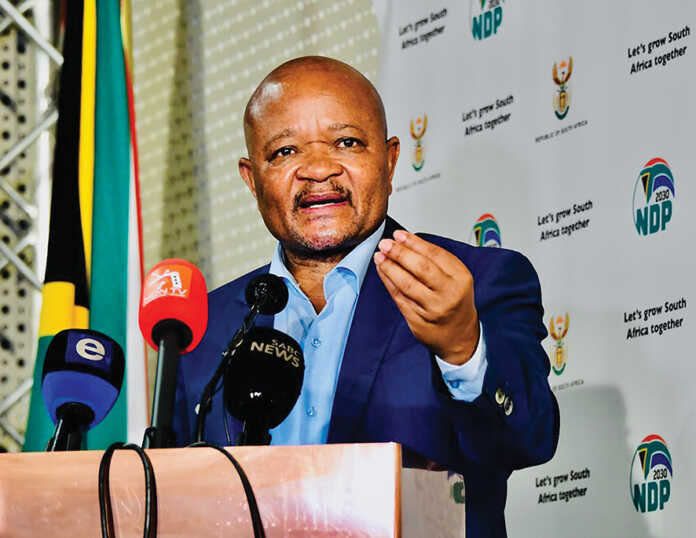Water and Sanitation Minister Senzo Mchunu is set to lead a departmental delegation to the seventh Africa Sanitation Conference (AfricaSan) in Swakopmund, Namibia.
The conference convened by African Ministers Council on Water (Amcow) and the commission of the African Union (AU) will end on November 11. On November 10, Mchunu will take part in a high-level Ministerial Dialogue with other Amcow member states, where conference outcome recommendations and decisions will be taken.
Mchunu said South Africa has dealt with sanitation challenges with the involvement of all stakeholders, including science organisations and the private sector.
He furthermore commended the main objective of AfricaSan, which is to ensure that issues of sanitation on the continent are addressed.
“Sanitation is essential for human dignity, and it is the bedrock of our well-being and an essential element for human health. Lack of sanitation can be a barrier to individual prosperity and sustainable development.
“It is important that the conference is keen on raising the profile of sanitation. Together, we want to see an enabling environment created to improve access to safely managed and sustainable sanitation services throughout the region.”
This year’s conference is held under the theme: Strengthening Systems and Partnerships for Accelerated Action on Safely Managed Sanitation and Hygiene.
The biennial conference was first launched in South Africa in 2002. I was initiated to provide a platform for technical and political dialogue with governments and stakeholders to identify and share knowledge in addressing sanitation and hygiene challenges in Africa.
In 2019 it was held in Cape Town, and the last AfricaSan6 conference was held virtually in 2021 due to the Covid-19 pandemic.
Universal access
The conference attendees are mainly ministers and officials working in the sector of sanitation and hygiene in Africa. Other stakeholders are academics, civil society, development partners and the private sector.
At the 4th AfricaSan held in Dakar, Senegal, in 2015, the ministers and heads of delegations signed visions and commitments to achieve universal access to adequate and sustainable sanitation and hygiene services and eradicate situations where people are forced to relieve themselves in the bushes by 2030.
To realise this vision, African governments made 10 commitments, which were adopted by the member states. These also reinforced the Sustainable Development Goals (SDGs) that have the same ambitious target of achieving global access to safely managed sanitation and hygiene, paying special attention to the needs of women and girls by 2030 (SGD 6.2).
The Ngor (Dakar) commitments and the SDGs are closely aligned in that they both focus on establishing the enabling environment necessary to attain universal access.
South Africa said it has made strides in two of the 10 commitments of the Ngor Declaration.
“Commitment 2 aims to mobilise support and resources at the highest political level for sanitation and hygiene to disproportionately prioritise sanitation and hygiene in national development plans.
“These commitments were realised in the country following strategic plans that have influenced the paradigm shift of sanitation management in South Africa,” the department said.



